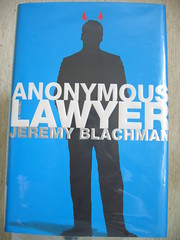Some time ago, I was reading about the use of the word “that.” I’m quite fond of it and decided to do a search of my ms and see how many times I used it.
914 times.
I then did a search and replace, inspecting each use and evaluating it. I eliminated over 300 uses of that word. I noticed other instances where I could better phrase the sentences and get rid of some more. I didn’t want to make a lot of sentence structure changes then, so as I’m going through and looking for times to ‘show and not tell’ I’m also looking at that word.
Is that a filler word? Like the word ‘like’. You, like, you know, want to go, like, to the store, and you know, like you see this like hunky guy, you know, and you so drool on yourself.
English classes teach us really bad habits. I found that out the hard way—in business writing. Instructors would give us assignments to write a 500-word paper. What did we do? We wrote the longest, most complicated sentences we could imagine in order to hit that magical 500-word mark. All those extra words didn’t make our point better, didn’t make it easier to understand, and probably didn’t make it any more fun to read.
Then we get into the real business world where we’re told correspondence better not be longer than one page. Business people are busy and a lengthy letter is likely to be set aside. There’s an interesting article here with some suggestions for when to eliminate ‘that.’
“That” is an example of an overused word. There are lots of them. One good place to find out where some of yours might be is autocrit. You can plug in some of your writing and it will evaluate it—500 words for free. There are also other software programs that do this.
And our host, Jordan, has a Word macro which cuts and pastes all the sentences using your crutch words into a new document if you already know what your writing crutches are.
Do you know what words you overuse or rely on too much?
About the Author
 Donna K. Weaver is a Navy brat who joined the Army and has lived in Asia and Europe. Because she sailed the Pacific three times as a child, she loves cruising and wishes she could accrue enough vacation time to do more of it with her husband. After recording city council minutes for twenty years, Donna decided to write something a little longer and with a lot more emotion–and kissing.
Donna K. Weaver is a Navy brat who joined the Army and has lived in Asia and Europe. Because she sailed the Pacific three times as a child, she loves cruising and wishes she could accrue enough vacation time to do more of it with her husband. After recording city council minutes for twenty years, Donna decided to write something a little longer and with a lot more emotion–and kissing.
Donna’s first novel, A Change of Plans debuted earlier this month. When Lyn sets off on her supposedly uncomplicated and unromantic cruise, she never dreams it will include pirates. She finds herself drawn to Braedon, an intriguing surgeon—but her emotional baggage dashes her hopes for a happy ending. Paradise turns to piracy when their party is kidnapped and Lyn’s fear of a fairytale turns grim. Now she must fight alongside the man she rejected, first for their freedom and then against storms, sharks, and shipwreck.
 by
by 
 And speaking of characters, and keeping with our theme this month, I wanted to focus on two specific words that many people use interchangeably: sympathy and empathy. I realized that, while I sense a difference, I can’t really say for certain what it is. So I turned to some dictionaries.
And speaking of characters, and keeping with our theme this month, I wanted to focus on two specific words that many people use interchangeably: sympathy and empathy. I realized that, while I sense a difference, I can’t really say for certain what it is. So I turned to some dictionaries. 